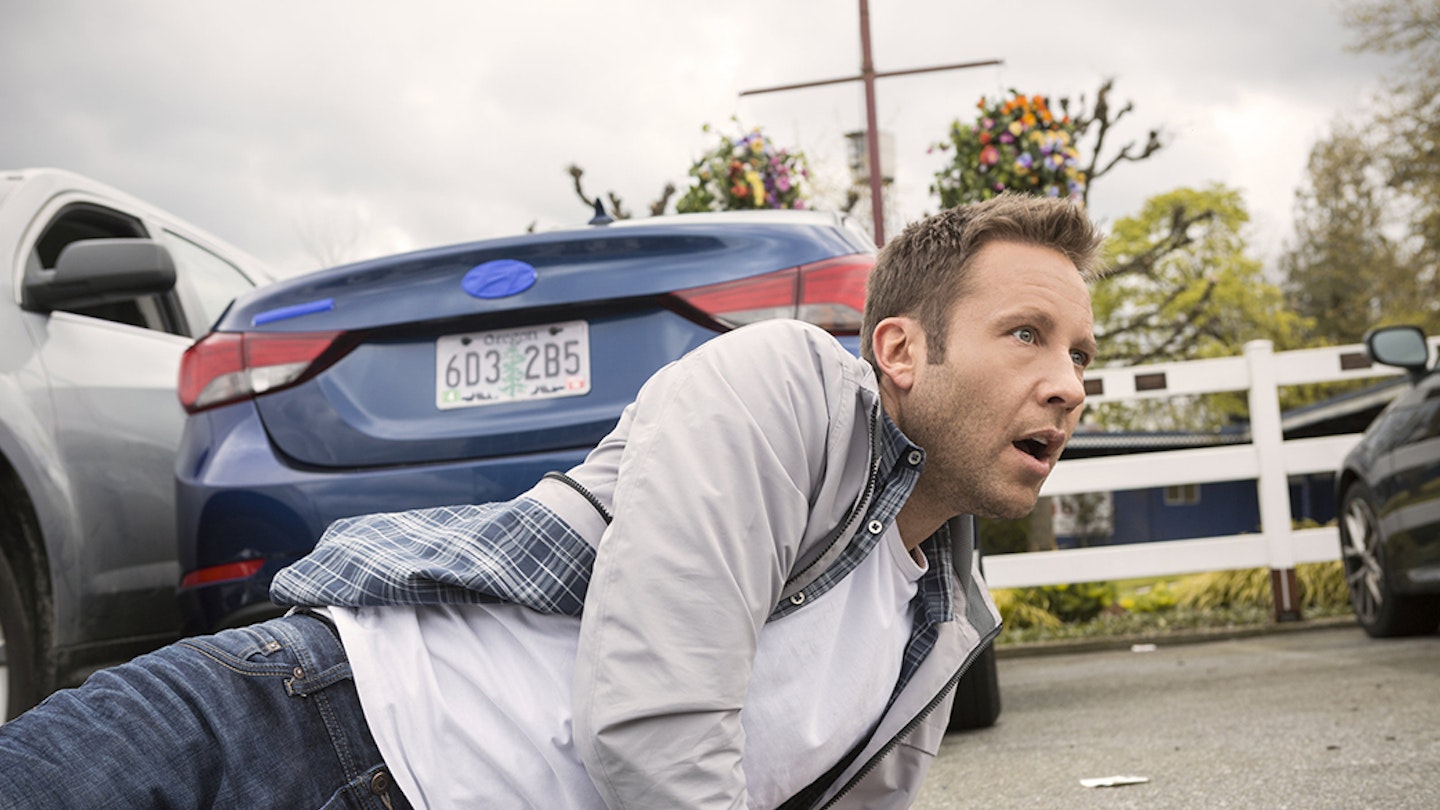Lex Luthor is a tough act to follow, a notion that isn’t lost on actor Michael Rosenbaum who portrayed the iconic Superman villain for seven of Smallville’s ten-year run. It was at that point, after having extended his six-year contract by one, that he set out on his own path, believing, as proud as he was of the Luthor role, that he had even more to offer the audience, particularly when it came to humor.
He got a chance to test that theory in the short-lived 2011 series Breaking In, but has really come into his own in Impastor, which is embarking on its second season. Rosenbaum plays Buddy Dobbs, something of a slacker with a gambling debt that is proving detrimental to his health. Running out of options, he’s ready to end it all by jumping off a bridge, but is saved by a young gay reverend who, while doing so, accidentally plunges to his own death. Suddenly Buddy is given new purpose: to take the reverend’s identity and proceeding to the small town the reverend was appointed to that has no idea he isn’t who he claims to be. What follows is his immersing himself in this new life, always looking over his shoulder for the moment when the truth becomes known and he has to flee. Think of it as The Fugitive, but with weed, sex and political incorrectness.
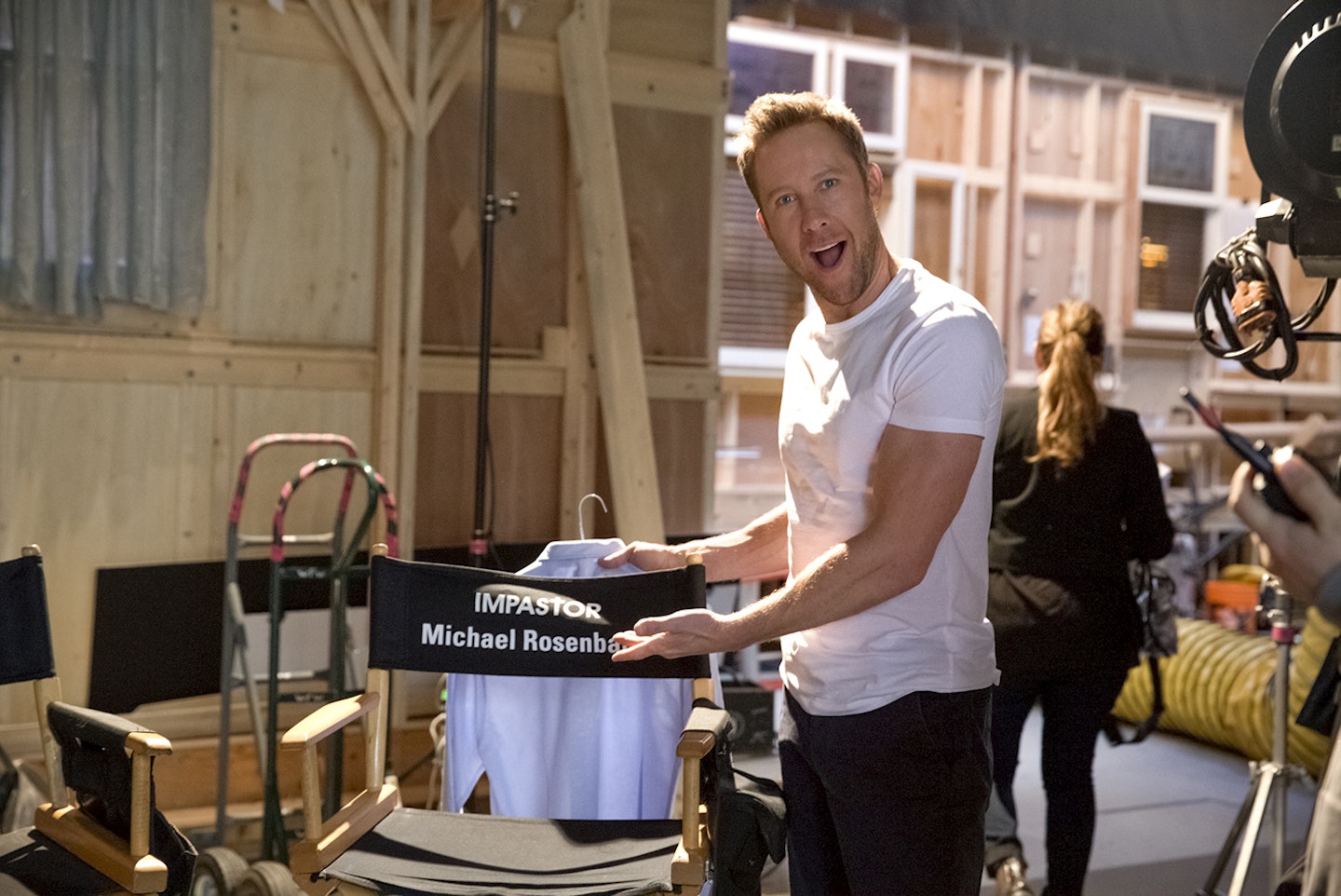
There seemed to be something surprising in you doing a series for TV Land in the States, but here you are, going into your second season.
That was my reaction when my agent gave me the script. He said, “It’s written by Eric Tannenbaum and it’s for TV Land.” I go, “TV Land? Look, man, I love I Dream Of Jeannie and I’m a big Gilligan’s Island fan, but I don’t want to do a show on TV Land. I don’t want to do that kind of fluff stuff.” They’re, like, "No, they’re changing their network.” I said, “I’ve heard that they’re changing and then you go in there and you can’t say 'damn.' You have to say 'crap.'" But then I read the Impastor script and realized it was really good and we say “cock” on page eight, we say “shit” on page twelve. Buddy's banging a prostitute. He said, “They want to do the show. They want to make it edgy, they want to make it fun, they want it to be serialized, shot like a movie, not a sitcom.” I went and had a conversation with Eric, who said he wanted me to executive produce the show with him. His words were, “Michael, I want you to be part of the creation. I want you to be part of the casting I want you to be involved in everything.” I didn’t believe they would, but they picked it up.
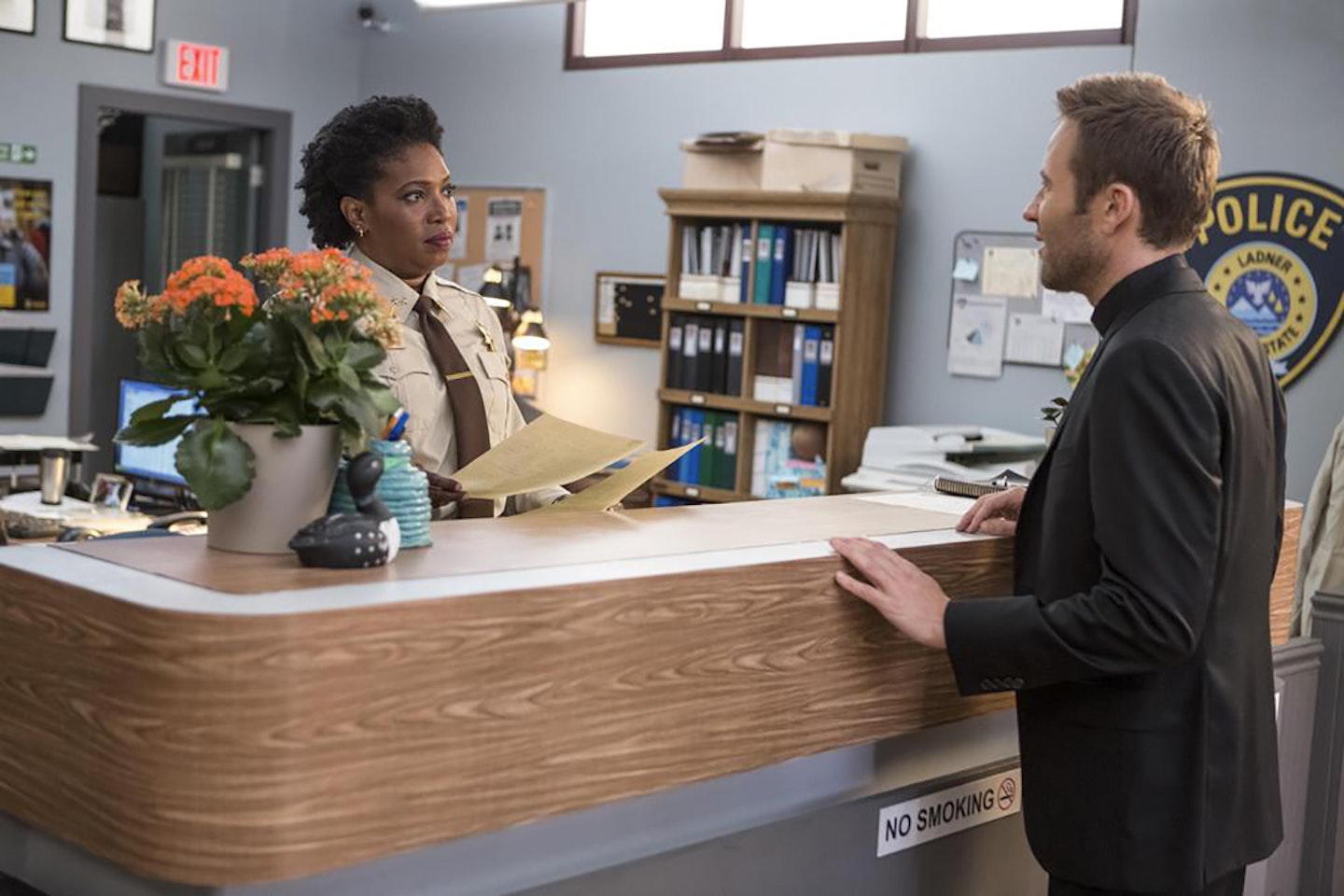
And then they picked it up for a second season.
Right? And I admire them for being patient and really believing in a show that is, I feel, unique and unlike anything on TV. It doesn't take itself too seriously, it still has edge, it surprises you, the characters are fun, it's shot beautifully, it's serialized, it's quirky, it's Fletch-like, it's easy to watch and it's only twenty-two minutes of your life. I think that getting people in this oversaturated business where there's a billion shows, is amazing. Getting people to watch it is the hard part, but when they do, then they tell other people. The truth is, you have only ten episodes nowadays and it’s hard to keep an audience. You come back a year later and try to get the same audience to come back and hope that it grows.
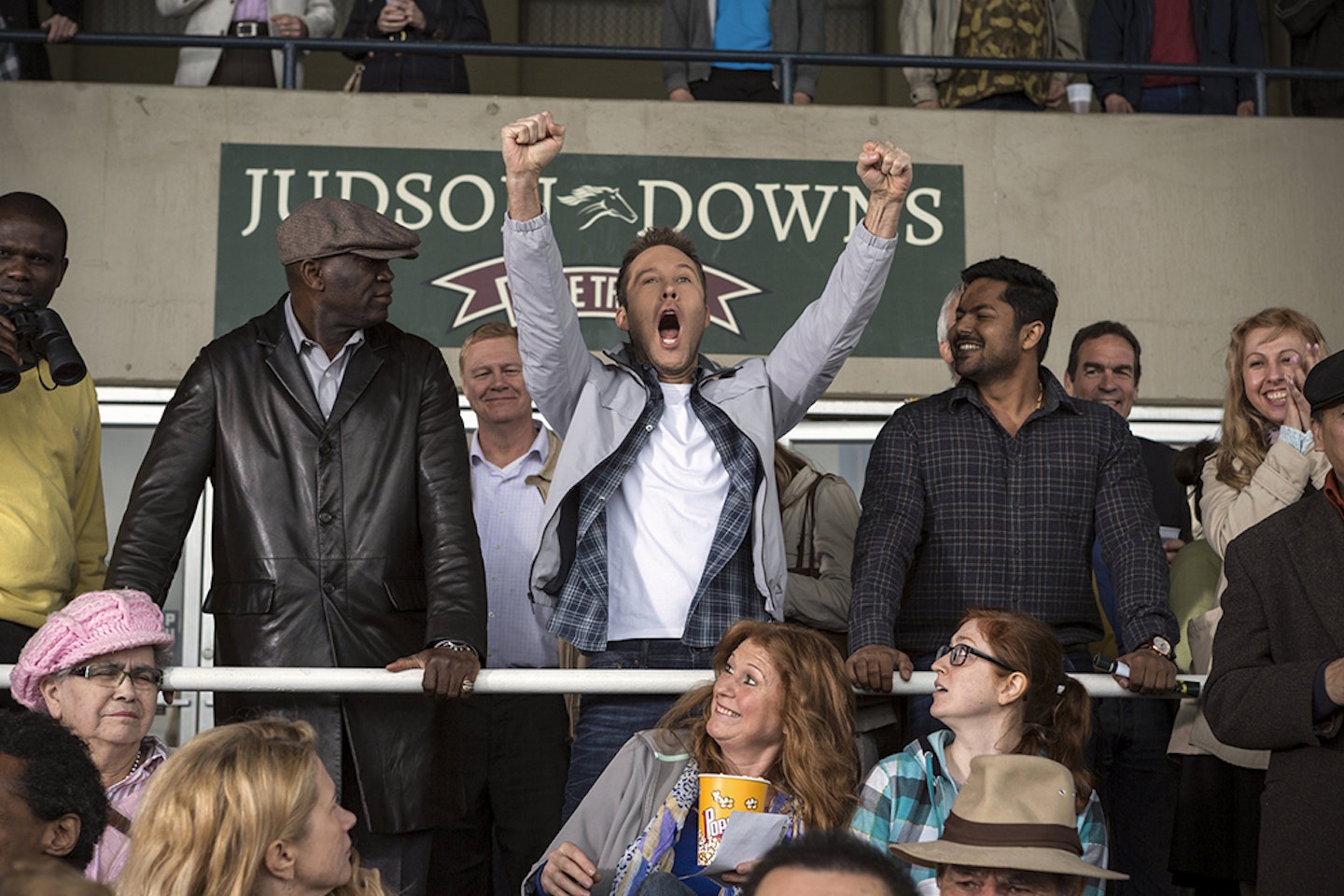
The advantage in the shorter season model in that, yes, you’ve got the opportunity to craft ten really solid episodes, but maintaining that audience is a challenge. On the other hand, much like you had with Smallville, there’s the twenty-two episode season run, which oftentimes has so much filler that it can dilute the dramatic thrust of the season.
How did they do it? How do you write twenty-two episodes a year? That’s ten months a year we’re working. We had freak of the week on Smallville for a while, but how couldn't you? You can’t write twenty-two brilliant episodes a year. You just can’t do it. It’s hard to write ten brilliant episodes a year, but if most of your episodes are compelling or good and keep the audience engaged, then you’re in good shape.
In some ways it seems like a tough premise for a series to sustain; the rug could be pulled out from under him at any second.
How Buddy got to this town is the most ridiculous thing you can imagine. He could always just split, but something’s keeps him around. He’s got this house, the town is so small and the people actually believe he’s this guy; they didn’t do any research on him and, on top of it, he’s starting to like some of them. And he’s, like, “Wow, this is the best scam I've ever done. I've got this prostitute on the side, I can steal some weed, I have to do these crappy sermons every once in a while, I have this beautiful house, I've got this assistant who will do anything for me.” At the same time, the keys are always in the ignition, he's always ready to go if something happens, but there's something keeps him there. Call it divine intervention, call it whatever you want, I think it's fun. There's an article on Zap2it that I always loved because I'm a huge Chevy Chase fan and it said he has a Fletch-like twinkle in his eye ... It is kind of an edgy Fletch.
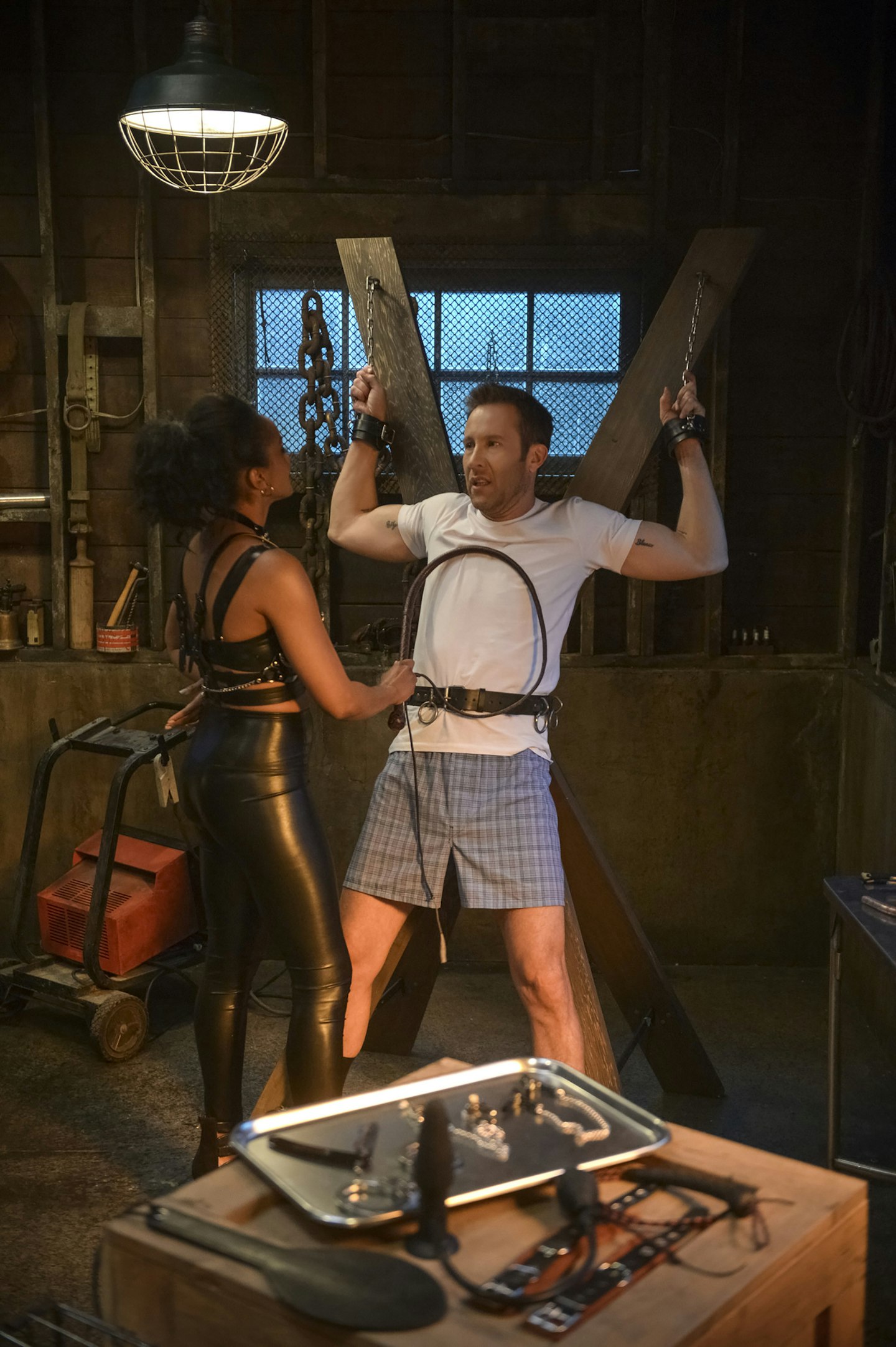
It seems that Buddy is evolving the longer he’s involved with these people, despite still being a bit of an asshole. Do you feel that he’s changing?
I think that Buddy's so used to getting shit on and then shitting right back on people as a defense mechanism. It's like when someone says, "Screw you," you say, "Screw you" back and you get so used to that that he just expects that out of people; he doesn't expect good out of people. Then he comes to this town and meets someone like Dora, played by Sara Rue, who's awesome in the show. You know, “There’s just no way she's this good. Something's messed up, she's not this good.” But then he starts to realize that there are good people out there and that kind of messes him up a little bit, because he's not used to it. Then he starts realizing that some of his actions are actually hurting people. Does that stop him? I don't know if it stops him, but it might make him… pause. I mean, the guy does have feelings. I think that he doesn’t want to hurt these people, and even wants to bang a few of them.
I also think he wants to make a little money and try to live the high life until he is forced to get out of there or he gets caught. He's not really a bad guy, I just think he grew up in a bad part of town, he didn't have a mom and dad around, he didn't have good role models, and he's just kind of looking out for himself. If he doesn't look out for himself, no one else will. If he has to take advantage of something and it hurts someone else, he doesn't feel great about it, but he tends to do it.
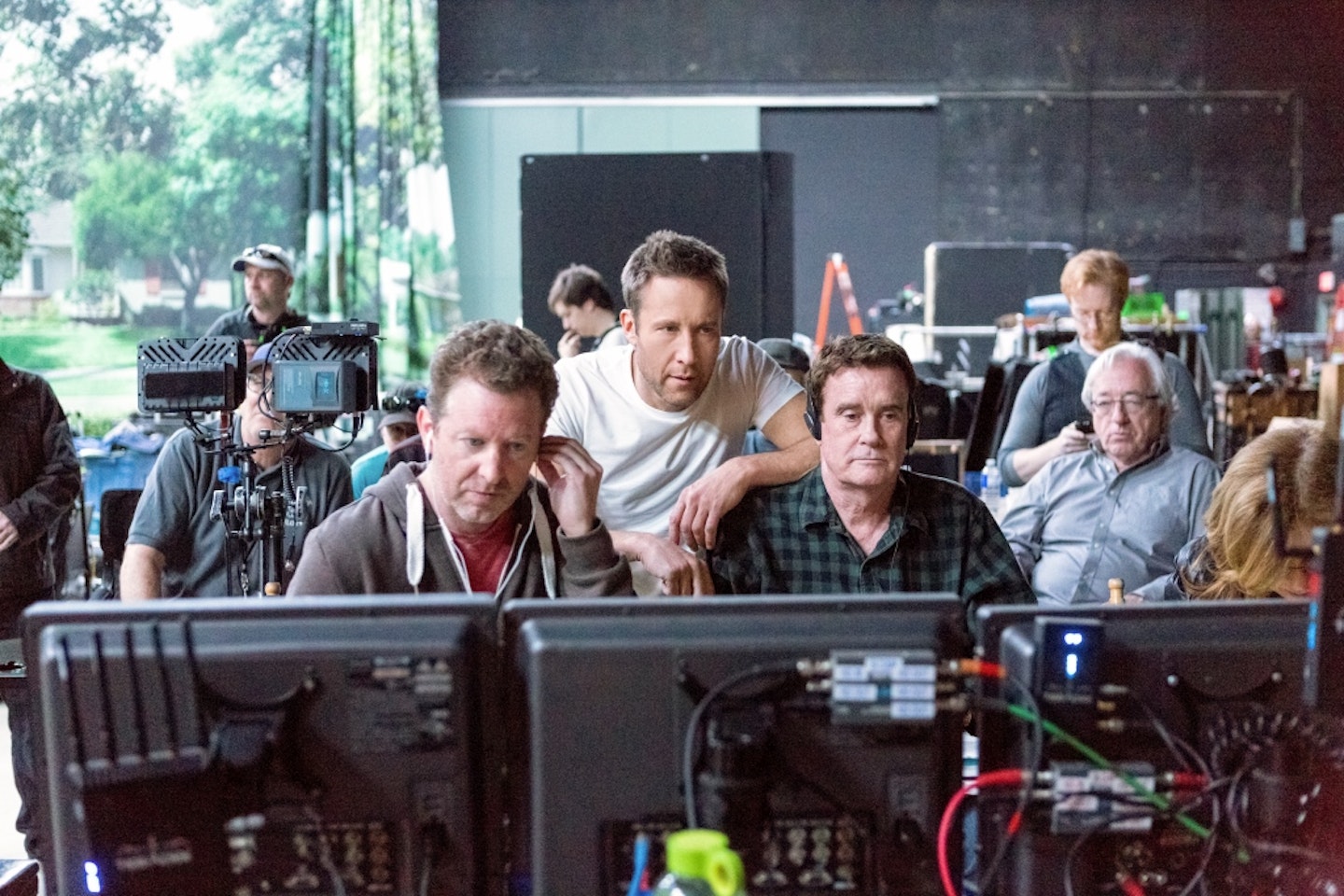
You’re so enthusiastic talking about Impastor but it really has been something of a bumpy road career wise, hasn’t it, since you were so determined to get off of Smallville after season seven?
I remember sitting with Peter Roth, the president of Warner Brothers ... I've never really told this story. Everybody has an ego and I think everybody likes to get their way. Peter took me to dinner, because he tried to get me to do two more seasons of Smallville. I was very polite and respectful. I said, "Peter, my grandma thinks I'm funny and I've always wanted to do comedy, and I started out in comedy, and I was doing tons of comedy, and then I was catapulted into this role that I love and it's been great, but I was contracted for six years to play Lex Luthor, I did seven, and I'm just ready to move on and I'm just ready to take a new step." He looked at me and says, "You know, Julianna Margulies, she turned down millions of dollars to stay with ER and look where she is now." It wasn’t two or three years later where she just made a fortune with The Good Wife and all of that, and her career just took off. I said, “I’m going to bank on my talent. I’m just going to take a chance on me. I think I’ve done this long enough, I did this character for seven years and I just don’t feel like shaving my head for two more years.” I came back for the finale, but at the time I just wanted to take a chance.
The transition was what I thought it would be. I remember Greg Beeman, who directed License to Drive, The Wonder Years and a lot of Smallville episodes, said, “You realize, dude, you’re the only person in the cast that looks different. Once you grow your hair out, you won’t look like you.” I hadn't thought of that. I called my agent and said, “Hey, set up general meetings with everybody. They need to see me with hair." We started doing that and then I was cast on Breaking In. Then I directed my first feature [2014’s Back In The Day] with Morena Baccarin, Nick Swardson, and Harland Williams. I couldn't have done more ... Again, I think you really have to know your ability and you have to know who you are. It wasn't ego, it wasn’t, “I’m not doing Smallville because I'm too good for it.” It was more, “Hey, I’ve got more to offer.” Look, luck is a commodity of preparation and opportunity and I feel like I'm always prepared when that moment comes. I think it comes down to just believing in yourself.
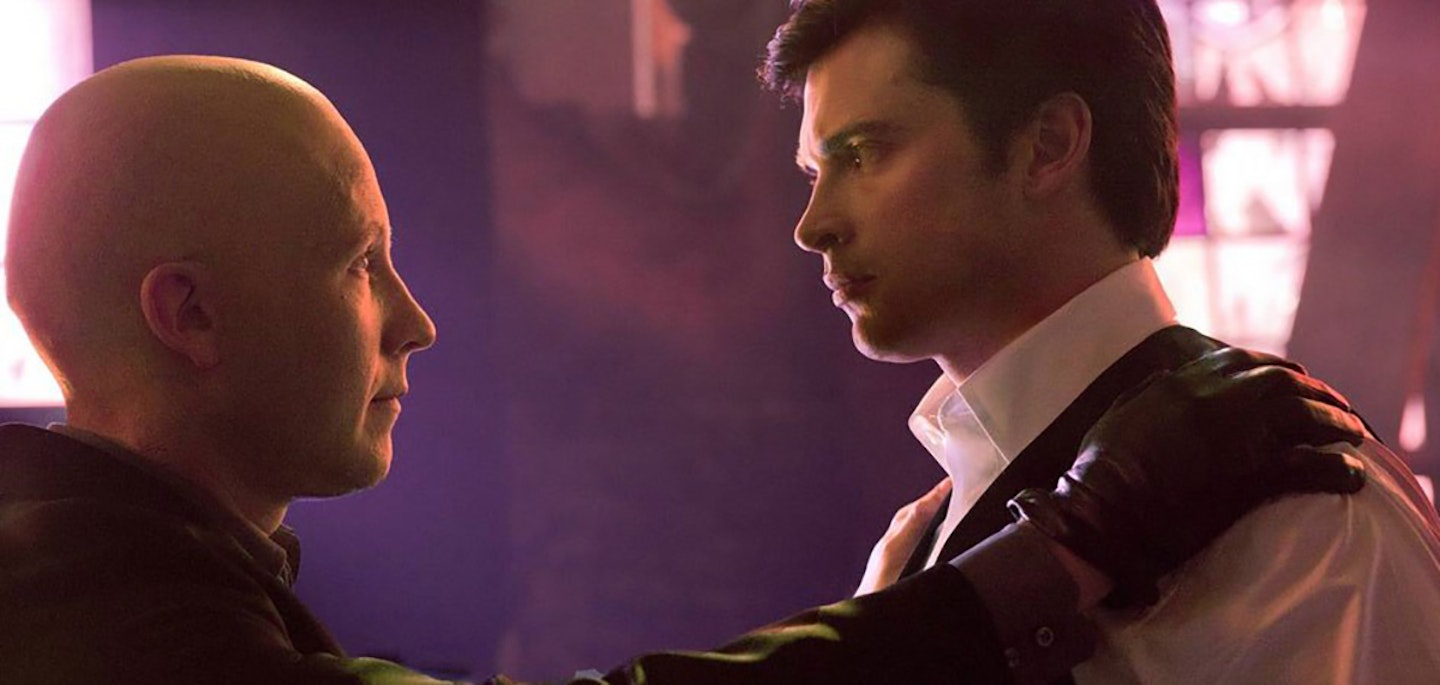
You mentioned that you appeared in the last episode of Smallville. What was your feeling about the way the show ended?
Here’s the thing: I didn’t watch the last three seasons, because I wasn’t in it. Call me egotistical, call me whatever, but that’s the reason I didn’t watch the show. I was working and getting my shit together. But I finally called them up and said, “Hey, look, it’s the last episode ever. I’ll do it, you’ve got me for one day next week.” When I got there I was, like, “What’s happened since I left?” I had no idea what was going on. There were moments where I just didn’t know what the fuck I was doing. I liked my scenes with Tom Welling, but I felt like the show was, for me, done when I left in season seven. Then I sort of did it for the fans and did it for me for closure and to say, “Hey, I did come back.” I did do it, and that's ultimately why.
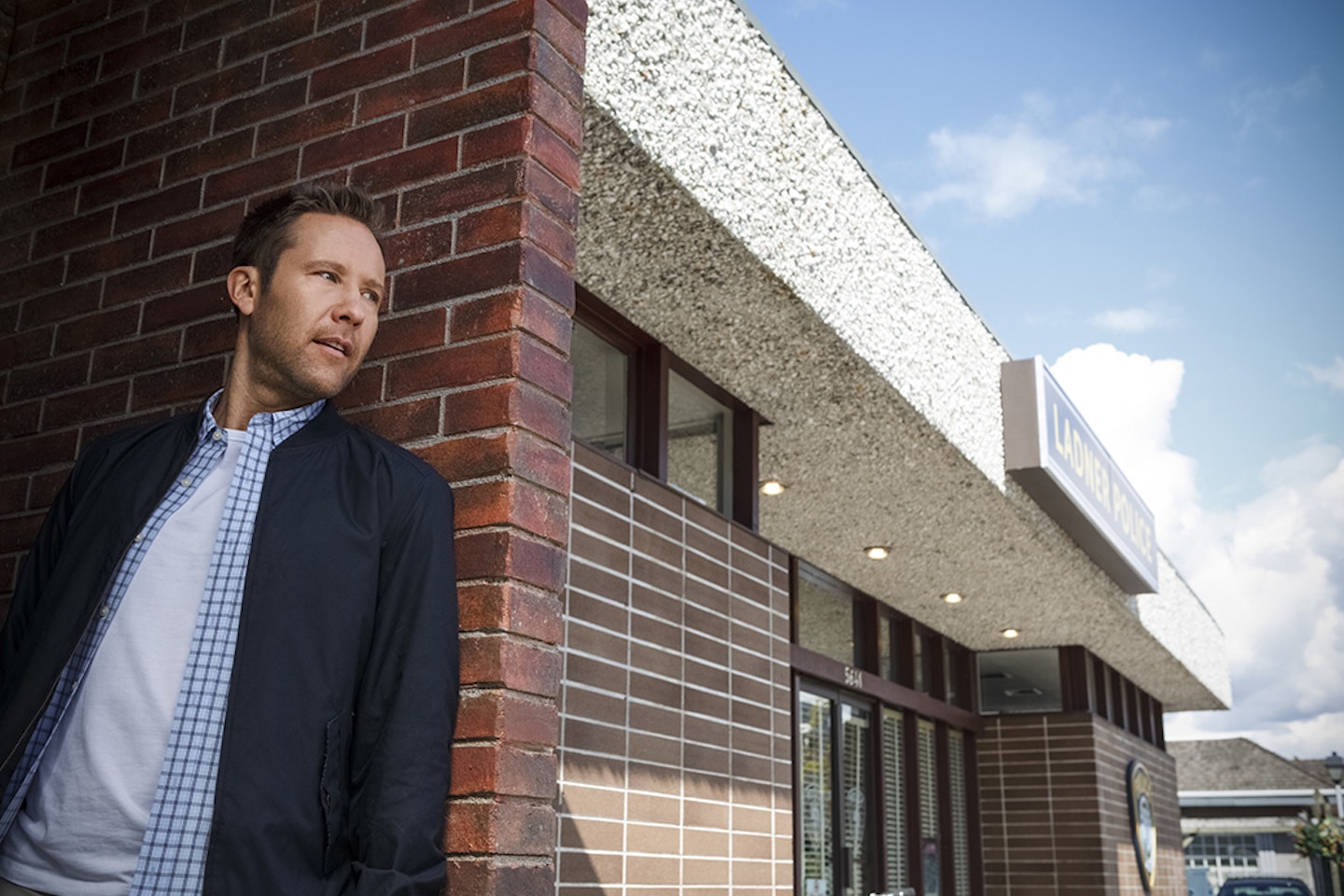
Do you realize that this is Smallville’s 15th anniversary?
Holy shit. You just made me feel really old, but I'm proud of it. I have fans all over the world because of that show and I love them. I go to Australia, I go to England…people just embrace it. You can’t be luckier as an actor or as a human being to feel that sort of accomplishment, and if that’s all I did — if I was just Lex Luthor — it would be enough. It really would be enough to go back home to New Berg, Indiana, where there are, like, 3,000 people in the town and where I wasn’t supposed to do anything. To say you were this iconic, legendary character for seven years. I would’ve mowed my lawn with a smile on my face.
Season two of Impastor premieres 28 September on TV Land in the US
